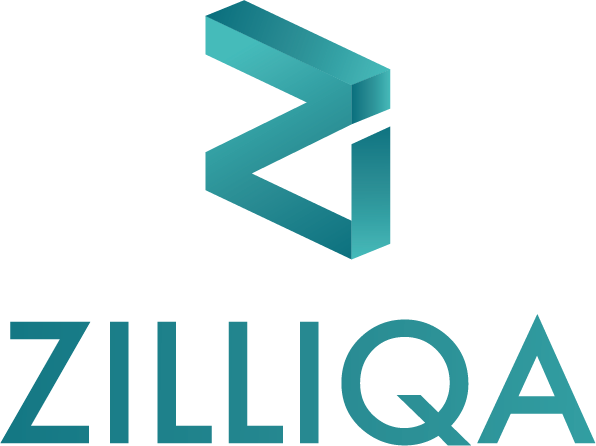Call for Contributions
Financial Cryptography and Data Security 2022

Twenty-Sixth International Conference
May 2–6, 2022
(note date change!)
Radisson Grenada Beach Resort
Grenada
Financial Cryptography and Data Security 2022 is a major international forum for research, advanced development, education, exploration, and debate on information security with a specific focus on financial and commercial systems. Original works on all aspects of financial security and privacy are solicited, from fundamental theory to real-world deployments. Submissions need not be exclusively concerned with cryptography. Systems security, economic or behavioral perspectives, and interdisciplinary efforts are particularly encouraged.
Since 2019, Financial Cryptography merged with the BITCOIN workshop to incorporate both traditional financial security topics as well as blockchains and cryptocurrencies.
Contributions are sought in the following categories:
- research papers,
- regular papers (15 pages + references and appendices),
- short papers (8 pages + references), and
- systematization of knowledge papers (20 pages + references and appendices)
- workshop proposals (2 pages), and
- posters (1 page).
Important Dates
| Paper registration | September 2, 2021 (firm!) |
| Paper submission | September 9 + (0–4) days, 2021 (firm!) |
| Paper notification | November 18, 2021 |
| Workshop proposal submission | August 20, 2021 (for full consideration; later submissions considered on rolling basis) |
| Workshop proposal notification | August 27, 2021 (on-time submissions) |
| Poster submission | November 25, 2021 |
| Poster notification | December 2, 2021 |
| Final pre-proceedings papers | January 17, 2022 |
| Conference | February 14–18, 2022 |
Submissions are accepted until 11:59pm, AoE UTC-12. | |
Topics
Topics of particular interest are listed below:
- Access Control, Authorization and Trust Management
- Anonymity and Privacy Enhancing Technologies
- Applied Cryptography
- Attacks, attack techniques, and attack case studies
- Auctions and Incentive Design
- Authentication, Identity Management and Biometrics
- Behavioral Aspects of Security and Privacy
- Blockchain Applications
- Blockchain protocols, including PoW, -stake, -burn, permissioned/permissionless
- Censorship circumvention and resistance
- Certification and Audits
- Cloud Computing and Data Outsourcing Security
- Data Security and Privacy
- Decentralized Finance (DeFi)
- Digital Cash and Payment Systems
- Distributed Consensus Protocols
- Digital Rights Management
- Economic and Monetary Aspects of Cryptocurrencies
- Economics of Security and Privacy
- Electronic Crime and Underground Markets
- Electronic Payments and Ticketing Systems
- Empirical studies, Real-world Measurements and Metrics
- Forensics, Monitoring and Transaction Graph Analysis
- Fraud Detection and Management
- Game Theory for Security, Privacy, and Blockchain
- Language-based security and formal verification
- Legal and Regulatory Issues of Blockchains, Cryptocurrencies, and Electronic Payments
- Machine Learning and AI Security
- Malware and Software Security
- Mobile Payments
- Network and distributed system security
- Peer-to-Peer Networks
- Phishing and Social Engineering
- Reputation Systems
- Security of Banking, Financial Services, and Electronic Commerce
- Smart Contracts and Financial Instruments
- Smartcards, Secure Tokens, and Secure Hardware
- Surveillance and Tracking
- System security
- Trusted Execution Environments (TEE) Security and Applications
- Usability and Security
- Web Security
Submission
Click here to submit a paper
Research paper submissions should be uploaded through the conference submission website (accessible via above link). For workshop proposals and poster submissions, see the corresponding sections below.Satoshi Grace Period
Many security conferences, including this one in the past, have claimed a firm deadline only to extend it by several days as the deadline approached. Keeping with the tradition started in FC19, we will implement a randomized deadline in a verifiable way.
All papers must be registered by Tue Sep 2, 2021. This means the titles, authors, abstracts, topics, submission options, conflicts, etc. (everything except the final PDF of the paper) must be entered into the submission system by this date. This date is firm and will not be extended.
On September 3, 2021, we will announce (in this space) a block height on the Bitcoin blockchain that we expect to be found the following day.
The selected block height is 698980.
Once the block of that height is found and confirmed, let the last hex digit of the hash of that block be L. Then the FC22 paper submission deadline will be September (9 + ceil(sqrt(L))), 2021. In table form:
| L | Paper submission deadline |
|---|---|
| 0 | Sep 9, 2021 |
| 1 | Sep 10, 2021 |
| 2, 3, 4 | Sep 11, 2021 |
| 5, 6, 7, 8, 9 | Sep 12, 2021 |
| A, B, C, D, E, F | Sep 13, 2021 |
When the paper submission deadline has been determined in this way, this page will be updated, and that deadline will be firm. The program chairs' interpretation of the above algorithm is final.
The FC22 firm submission deadline is Mon Sep 13, 2021.
If this is too complicated, you are welcome to submit a final PDF any time by Sep 9, 2021, which is guaranteed to be before the deadline.
General Information
For each accepted paper/poster the conference requires at least one registration at the general or academic rate, and paper authors must sign the IFCA copyright form when submitting the final version. Alternatively, individual papers can be published as fully open access—the publisher charges authors a fee for this.
Format
Papers must be formatted in standard LNCS format (templates) and submitted as PDF files. Submissions in other formats will be rejected. All papers must be submitted electronically according to the instructions and forms found here and at the submission site.
Anonymous Submission
Regular and short research paper submissions must be anonymized with no author names, affiliations, acknowledgments, or obvious references. Failure to properly anonymize submitted papers is grounds for a desk rejection without review. It is acceptable (but by no means required) for submitted papers to be published online in non-anonymous form (e.g., on authors' websites or archives like ePrint or arXiv.org). Program committee members will be instructed not to actively seek to de-anonymize papers.
Resubmission to Affiliated Workshops
Papers that are submitted but ultimately not accepted to the main conference may be considered for acceptance at one of the associated workshops. If you would like to take advantage of this, please indicate this preference when submitting your paper.
Evaluation Criteria
Regular Research Papers
Research papers should describe novel, previously unpublished scientific contributions to the field, and they will be subject to rigorous peer review. Accepted submissions will be included in the conference proceedings to be published in the Springer-Verlag Lecture Notes in Computer Science (LNCS) series. Submissions are limited to 15 pages in standard LNCS format excluding references and appendices. A total page restriction may apply for the printed proceedings version. Committee members are not required to read the appendices, so the full papers should be intelligible without them.
Short Papers
Short papers are also subject to peer review; however, the intention is to encourage authors to introduce work in progress, novel applications, and corporate/industrial experiences. Short papers will be evaluated with a focus on novelty and potential for sparking participants' interest and future research avenues. Short paper submissions are limited to 8 pages in standard LNCS format in total. The paper title for short papers must include the text "Short Paper:". Accepted submissions will be included in the conference proceedings. The authors of some submissions not accepted as regular research papers may be offered the option of acceptance as a short paper.
Systematization of Knowledge Papers
We also solicit Systematization of Knowledge (SoK) papers. To be suitable for publication, SoK articles must provide an added value beyond a literature review, such as novel insights, identification of research gaps, or challenges to commonly held assumptions. SoK paper submissions are limited to 20 pages in standard LNCS format excluding references and appendices. Accepted submissions will be included in the conference proceedings. A total page restriction may apply for the printed proceedings version. Committee members are not required to read the appendices, so the full papers should be intelligible without them. The paper title for systematization of knowledge papers must include the text "SoK:".
Ethics and Etiquette
Original Submissions
Authors may submit only work that does not substantially overlap with work that is currently submitted or has been accepted for publication to any other peer-reviewed conference/workshop with proceedings or a journal. We consider double submission serious research fraud and will treat it as such. Note that it is acceptable for papers to appear in non-peer-reviewed formats (for example, as technical reports or in online archives such as ePrint). In case of doubt contact the program chairs for any clarifications at fc22chair@ifca.ai.
Ethical Considerations for Vulnerability Disclosure (From IEEE S&P)
Where research identifies a vulnerability (e.g., software vulnerabilities in a given program, design weaknesses in a hardware system, or any other kind of vulnerability in deployed systems), we expect that researchers act in a way that avoids gratuitous harm to affected users and, where possible, affirmatively protects those users. In nearly every case, disclosing the vulnerability to vendors of affected systems, and other stakeholders, will help protect users. It is the committee's sense that a disclosure window of 45 days to 90 days ahead of publication is consistent with authors' ethical obligations.
Longer disclosure windows (which may keep vulnerabilities from the public for extended periods of time) should only be considered in exceptional situations, e.g., if the affected parties have provided convincing evidence the vulnerabilities were previously unknown and the full rollout of mitigations requires additional time. The authors are encouraged to consult with the PC chairs in case of questions or concerns.
The version of the paper submitted for review must discuss in detail the steps the authors have taken or plan to take to address these vulnerabilities; but, consistent with the timelines above, the authors do not have to disclose vulnerabilities ahead of submission. If a paper raises significant ethical and/or legal concerns, it might be rejected based on these concerns. The PC chairs will be happy to consult with authors about how this policy applies to their submissions.
It is the responsibility of all paper authors to provide clear evidence that their work follows relevant ethical standards. If a paper raises significant ethical and/or legal concerns, it may be rejected. The PC chairs will consult with authors about how this policy applies to their submissions and may request additional clarifying information about submissions as needed.
Ethical Considerations for Human Subjects Research (From IEEE S&P)
Submissions that describe experiments on human subjects, that analyze data derived from human subjects (even anonymized data), or that otherwise may put humans at risk should:
- Disclose whether the research received an approval or waiver from each of the authors' institutional ethics review boards (IRB) if applicable.
- Discuss steps taken to ensure that participants and others who might have been affected by an experiment were treated ethically and with respect.
If a submission deals with any kind of personal identifiable information (PII) or other kinds of sensitive data, the version of the paper submitted for review must discuss in detail the steps the authors have taken to mitigate harms to the persons identified.
Conflict of Interest
Authors should report in the submission site any conflicts with program committee members. A conflict exists if an author has the same affiliation as a committee member, has ever acted as their PhD supervisor or been supervised by them, or if they have been co-authors on a paper within the past two years.
Program Chairs
| Ittay Eyal | Technion |
| Juan Garay | Texas A&M |
Program Committee
| Ittai Abraham | VMware Research |
| Christian Badertscher | IOHK |
| Foteini Baldimtsi | George Mason University |
| Jeremiah Blocki | Purdue University |
| Rainer Böhme | University of Innsbruck |
| Joseph Bonneau | New York University |
| Christian Cachin | University of Bern |
| L Jean Camp | Indiana University |
| Srdjan Capkun | ETH Zurich |
| Hubert Chan | University of Hong Kong |
| Jing Chen | Stony Brook University |
| Michele Ciampi | The University of Edinburgh |
| Jeremy Clark | Concordia University |
| Vanesa Daza | Pompeu Fabra University |
| Stefan Dziembowski | University of Warsaw |
| Karim Eldefrawy | SRI International |
| Matthias Fitzi | IOHK |
| Chaya Ganesh | Indian Institute of Science, Bangalore |
| Christina Garman | Purdue University |
| Arthur Gervais | Imperial College London |
| Stephanie Hurder | Prysm Group |
| Ari Juels | Cornell Tech |
| Aniket Kate | Purdue University |
| Eleftherios Kokoris Kogias | IST Austria & Novi Research |
| Nikos Leonardos | National and Kapodistrian University of Athens |
| Ben Livshits | Imperial College London and Brave Software |
| Daniel Masny | Visa Research |
| Shin'ichiro Matsuo | Georgetown University / NTT Research |
| Patrick McCorry | Infura |
| Shagufta Mehnaz | Dartmouth College |
| Ian Miers | University of Maryland |
| Andrew Miller | University of Illinois at Urbana-Champaign |
| Tal Moran | IDC |
| Pedro Moreno-Sanchez | IMDEA Software Institute |
| Pratyay Mukherjee | Visa Research |
| Kartik Nayak | Duke University |
| Georgios Panagiotakos | IOHK |
| Benny Pinkas | Bar-Ilan University |
| Alex Psomas | Purdue University |
| Elizabeth Quaglia | Royal Holloway, University of London |
| Ling Ren | University of Illinois at Urbana-Champaign |
| Ori Rottenstreich | Technion |
| Mahmood Sharif | Tel Aviv University |
| abhi shelat | Northeastern University |
| Mark Simkin | Aarhus University |
| Alessandro Sorniotti | IBM Research - Zurich |
| Alexander Spiegelman | Novi Research |
| Ewa Syta | Trinity College |
| Qiang Tang | The University of Sydney |
| Vanessa Teague | Thinking Cybersecurity and the Australian National University |
| Daniel Tschudi | Concordium |
| David Tse | Stanford University |
| Marko Vukolic | Protocol Labs |
| Riad Wahby | Stanford and Algorand |
| Roger Wattenhofer | ETH Zurich |
| Edgar Weippl | University of Vienna, SBA Research |
| Fan Zhang | Duke University |
| Ren Zhang | Nervos |
| Yupeng Zhang | Texas A&M University |
| Hong-Sheng Zhou | Virginia Commonwealth University |
| Vassilis Zikas | Purdue University |
| Aviv Zohar | The Hebrew University |
Workshop Proposals
Proposals for workshops to be held at FC22 are also solicited. A workshop can be a full day or half day in length.
Workshop proposals should include:
- a title
- a call for papers
- a brief summary and justification, including how it would fit into the greater FC scope
- (tentative) Program Committee and its Chair(s)
- one-paragraph biographies for key organizers, the expected (or previous, if the workshop has been held in previous years) number of submissions, participants and acceptance rates
Workshop proposals must not be anonymous and should be sent to fc22workshops@ifca.ai. Proposals received after the submission deadline will be considered on a rolling basis for any remaining slots.
Posters
The poster session is the perfect venue to share a provocative opinion, interesting established or preliminary work, or a cool idea that will spark discussion. Poster presenters will benefit from a multi-hour session to discuss their work, get exposure, and receive feedback from attendees. Note that the poster session will only take place if there is a physical event.
Poster submissions should be a 1-page abstract (in the same LNCS format) describing the poster. Please keep in mind that the poster deadline is later than the main paper notification deadline. Poster proposals must not be anonymous and should be sent to the posters chair at fc22posters@ifca.ai.
Rump Session
FC22 will also include the popular "rump session" held on one of the evenings in an informal, social atmosphere. The rump session is a program of short (5 minutes), informal presentations on works in progress, off-the-cuff ideas, and any other matters pertinent to the conference. Any conference attendee is welcome to submit a presentation to the Rump Session Chair (to be announced at the conference). This submission should consist of a talk title, the name of the presenter, and, if desired, a very brief abstract. Submissions may be sent via e-mail or submitted in person in the morning on the day of the session.
This conference is organized annually by the International Financial Cryptography Association.

















